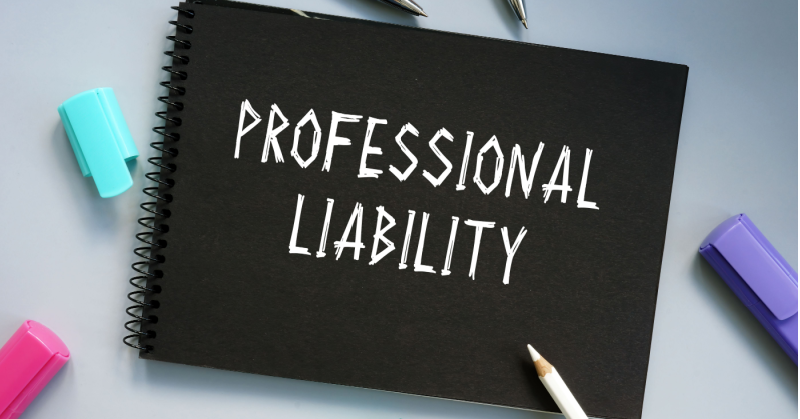To insure or not to insure, that is the question. I’ve had discussions on this topic with many bookkeepers and accountants, and my unscientific/informal polling reveals that most firms have purchased some kind of insurance coverage for protection, but many sole proprietors have not. Let’s look at why a sole proprietor bookkeeper or tax preparer might consider obtaining professional liability insurance.
Note: I am not an insurance professional and I am not offering legal advice; I do not represent or endorse any insurance carriers or insurance products; I am not being paid by any outside third party to write this post. This post is merely to shed light on the topic and open up a discussion.
What is professional liability insurance?
First of all, what is it? Professional Liability Insurance in our industry is usually known as Errors and Omissions (E&O) insurance. Many of our clients buy liability insurance for their businesses, and they may buy E&O and/or D&O insurance (Directors and Officers Insurance). What is the difference?
Per insurer Allianz, “D&O is there to protect high-level decision makers when someone asserts they were negligent in their duties as an officer or board member. E&O, on the other hand, covers acts, errors, and omissions committed by employees of the company.”
So D&O is in order if a person is a Director or Officer of a company. Since a Sole Proprietor is generally not considered a Director or Officer of a company, E&O insurance is an alternative.
Per Investopedia, “E&O is a type of professional liability insurance that protects companies, their workers, and other professionals against claims of inadequate work or negligent actions.”
There is also something called ELPI or Employee Practices Liability Insurance; this is a consideration for companies with employees and not necessary for Sole Proprietors.
What does professional liability insurance cover?
E&O coverage kicks in if a client accuses a professional services provider of making a mistake. The coverage generally includes:
- Errors, mistakes, or oversights incurred during the course of work
- Failure to meet a deadline or deliver a specific service promised to a customer
- Professional negligence
- Failure to meet a specific standard of care, especially if outlined by a given profession
- Breach of contract
How much does professional liability insurance cost?
Coverage is generally along the lines of up to a certain dollar amount, say $100,000 for each Claim or $300,000 for all Claims in aggregate.
Fees are generally for one policy year, and a deductible per claim usually applies. Supplemental coverage can be added for various circumstances such as Disciplinary and Regulatory Proceedings, Crisis events, Withheld Client Fee Assistance, and Expense Reimbursement. A Privacy and Security Liability rider can usually be added.
A policy with features such as those listed above generally costs less than $1,000 per year for coverage.
When should I reach out about filing a PLI claim?
If you suspect you are getting into hot water with a client, and conversations with the client have turned sour, you would notify your carrier of a potential claim. At that point, the carrier will assist you in determining if a claim should be opened and the deductible paid. Then you will follow the instructions provided by your carrier on how to proceed next.
Where can I buy professional liability insurance?
Most major insurers offer E&O, and the premium is typically tied to annual gross revenues. Many industry associations offer current members links to providers, such as the AIPB (American Institute of Professional Bookkeepers), and the NAEA (National Association of Enrolled Agents).
Other considerations
- The cost of the insurance premium is a deductible business expense.
- Coverage provides peace of mind.
Resources:
Here is a good article from the American Bar Association: Five Things to Know About D&O
Here is a good article by Transparity Insurance Services: E&O vs D&O vs. EPLI: When is Each Coverage Needed?
.png?width=150&height=63&name=TWRlogo-regmark_blueblack%20(1).png)
.png)










Do you have questions about this article? Email us and let us know > info@woodard.com
Comments: